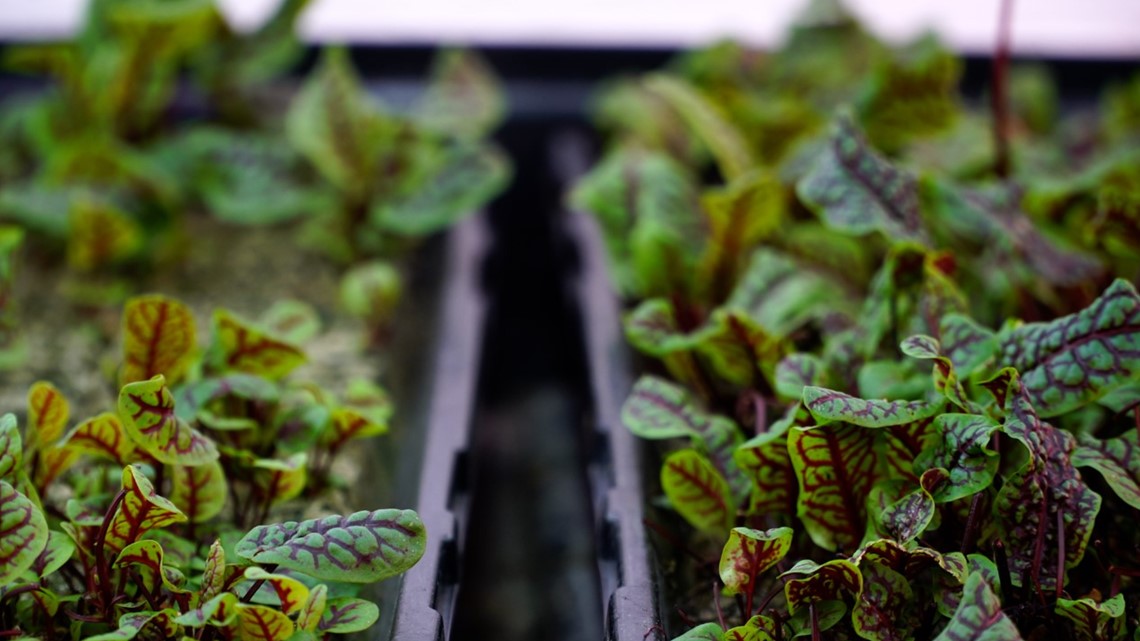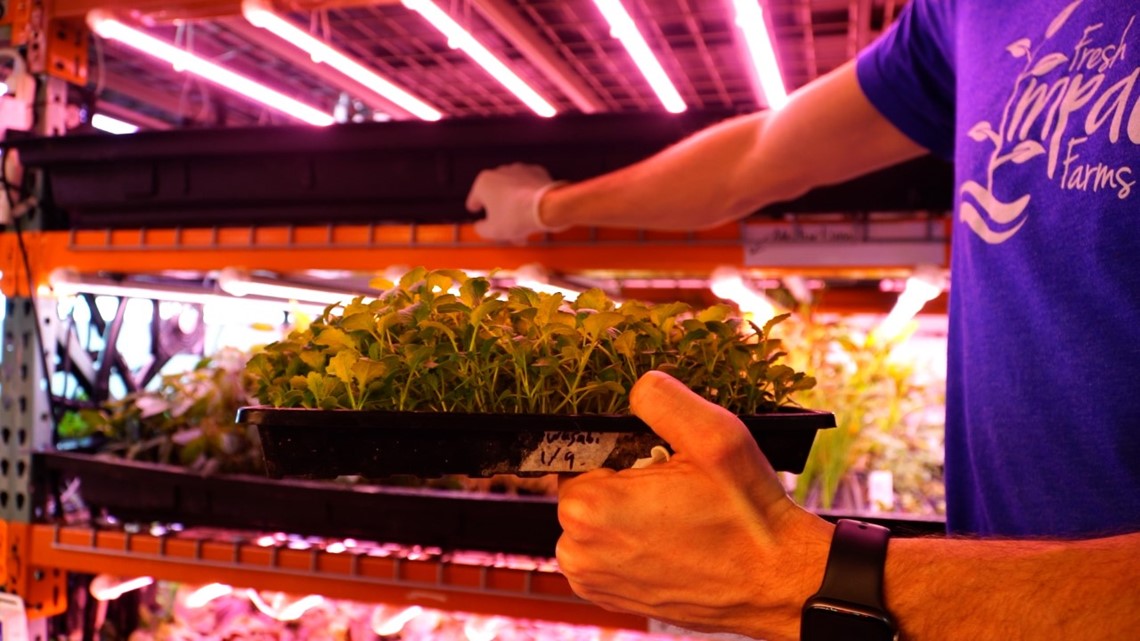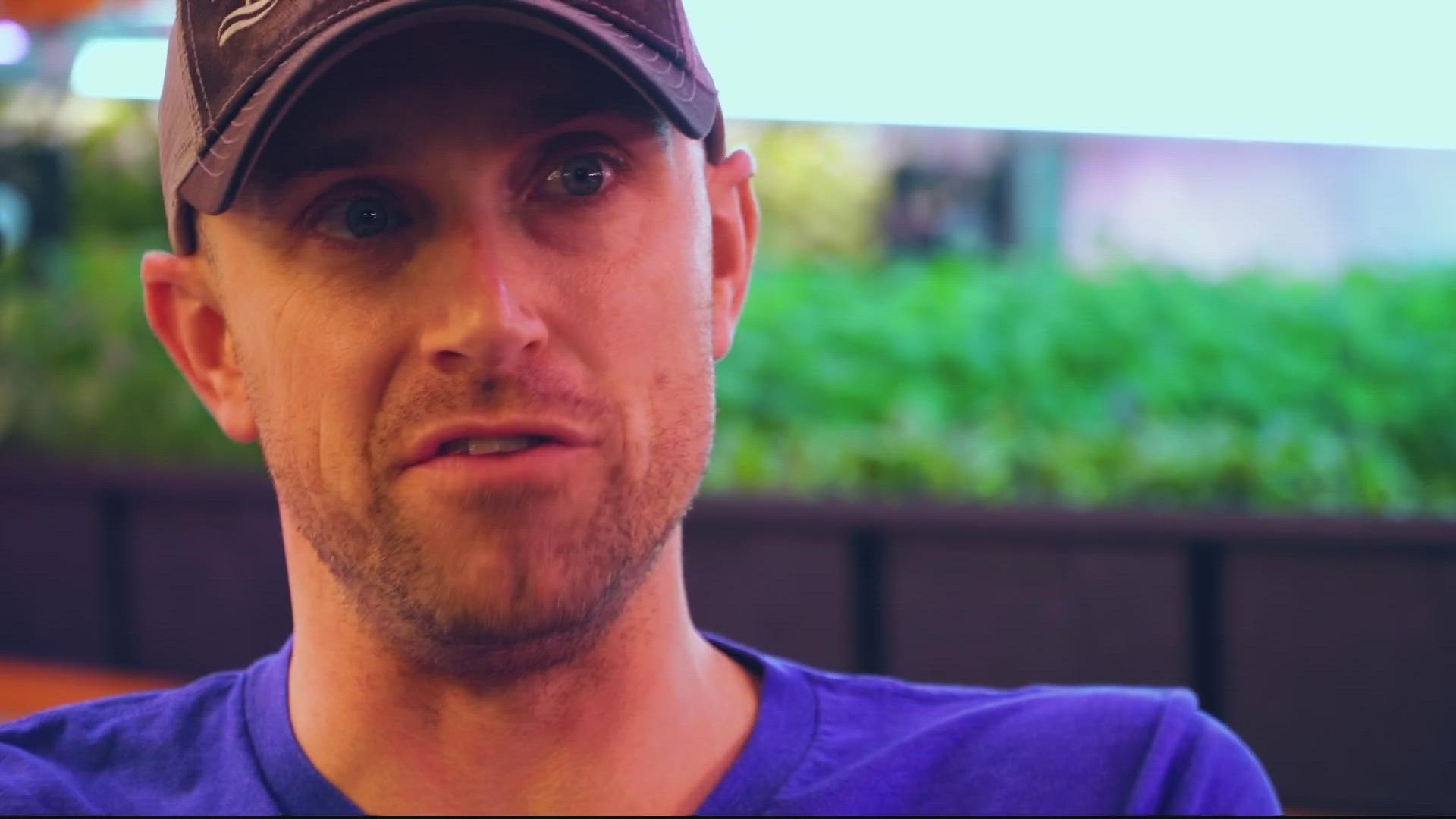ARLINGTON, Va. — Amazon is setting up shop in Arlington, but the county still has serious economic challenges post-pandemic, including record-high empty office space. It’s costing Arlington millions every year, and now there’s an outside-the-box idea to turn things around.
Growing food indoors.
“I don't know if it's a round peg in a square hole as much as it's a round peg in an oval hole,” said Ryan Pierce, owner of Fresh Impact Farms. Northern Virginia’s first urban, vertical farms.
“You can make it fit if you wiggle it, right? But does it fit? Well?”
Tucked away in an Arlington strip mall, Pierce is cultivating the future with Fresh Impact, which has been in business since 2017.
Using hydroponic technology, all water, no soil, and a ton of LED lighting, Fresh Impact grows herbs, greens and 23 varieties of edible flowers cultivated for specific flavors.


From Wasabi Arugula to the exotic Szechuan Button. Inside this once-empty strip mall warehouse space you will find greens used to garnish delicacies at some of D.C.’s finest restaurants.
“Fiola Mare, Fiola,” Pierce said. “Seven Reasons, Imperfecto.’
The biggest investment with the vertical farm is the startup costs. Fresh Impact topped hundreds of thousands of dollars. And that’s before the electricity bill which is about $2,000 bucks a month for Pierce.
“Do I believe it’s a way of the future? Yes,” Pierce said. “Do I believe everybody should be doing it? Probably not.”


But Arlington County is hoping to plant a flag in the vertical farming industry by encouraging more urban grow operations like this one. As a way to fix its own growing problem: Filling office space.
In Arlington, office vacancy rates have hit an all-time high, hovering at about 22% with more and more companies not renewing leases post-pandemic and that is costing the county big time.
Ryan Touhill, Executive Director for Arlington Economic Development, says for every percentage point office vacancy rates rise, Arlington loses about $3.5 million dollars a year in tax revenue.
“There are no silver bullets,” Touhill said. “I think that's the mindset we have to take is that it's going to be a lot of little things.”
This is why Arlington recently rolled back decades-long zoning laws that will allow for alternative uses of empty office space. Everything from breweries to pet sitting, and vertical farms.
Pierce is skeptical.
“I caution that we’re going to solve other problems with this industry right now, quickly,” he said. “It’s a long-term process.”
Problems like empty office space he said.
“I think it’s far more challenging than what a lot of people think it would be,” Pierce continued. “Offices are designed for people. Right? Making something comfortable for people is totally different from making something comfortable to essentially manufacture plants.”
Pierce says another challenge is that vertical farms need cheap office space to survive. And office space next door to Amazon likely won’t come cheap.

